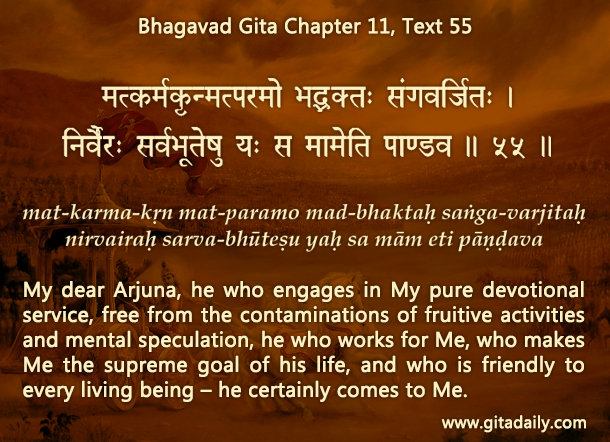To know when to forgive, we need to recognize two different needs: ending atrocity and ending animosity.
Ending atrocity: If someone is treating us hurtfully, or worse still, atrociously, we need to protect ourselves; if we naively forgive them, they will keep hurting us more and more. Protecting ourselves may require confrontation, especially when other means don’t work. By confronting wrongdoers effectively, we can at least deter them from hurting us again. In Mahabharata, the Pandavas were repeatedly wronged by the Kauravas, and their peace overtures were derisively dismissed. No wonder the Bhagavad-gita (11.33) urged Arjuna to fight and neutralize the Kauravas.
Ending animosity: While striving to end atrocity, we also need to end animosity, at least in ourselves. Otherwise, that animosity will make us burn with resentment and revengefulness. And if animosity becomes our habitual attitude, we will start burning over others’ small, unintentional wrongs. Pertinently, the same Gita chapter that urges Arjuna to fight also concludes by calling upon him to work without any animosity toward anyone (11.55).
If others’ hurtful action was just a one-time lapse and they bear us no malice, we can end animosity by simply forgiving them and moving on. If they are habitual offenders who show no remorse or reform, we can confront them appropriately to deter them. Then we can free ourselves from animosity by forgiving their past wrongs and move on.
If we don’t do the needful to stop atrocity, others may hurt us repeatedly. Simultaneously, if we don’t do the needful to stop animosity within us, we will hurt ourselves repeatedly. By understanding the dual needs to end atrocity and animosity, we can find the best way ahead.
Think it over:
- If we are being hurt by others, what do we need to do about others’ actions?
- If we are being hurt by others, what do we need to do about our attitude?
- How can you apply this to any hurtful situation you are facing?
***
11.55 My dear Arjuna, he who engages in My pure devotional service, free from the contaminations of fruitive activities and mental speculation, he who works for Me, who makes Me the supreme goal of his life, and who is friendly to every living being – he certainly comes to Me.
To know more about this verse, please click on the image
Explanation of article:
Podcast:


Hare Krishna!
Dandavat Pranam, all glories to Guru and Gauranga!
Thank you very much for beautifully explaining the art of forgiveness.
May Krishna bless you good health so that you can uplift people like me who are more lower than Jaggi and Maddai..
your servant
Shakti.
Dear Shakti
Thanks for your good wishes. I pray that Krishna help you move closer to him with each passing day.
nice ,please keep it up